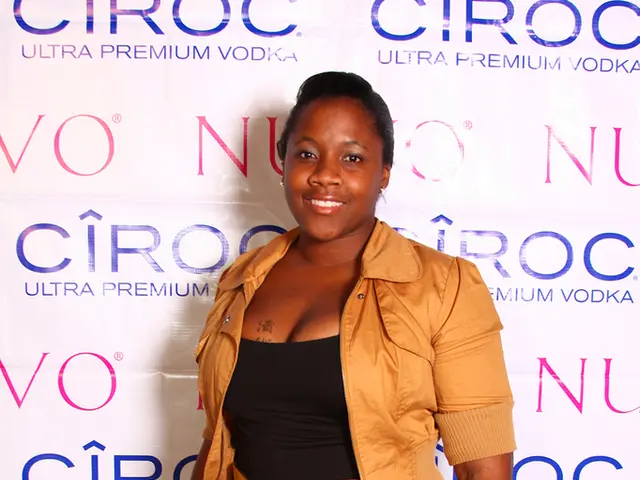Growing Waves of Stardom in Retail: A Shift in Shopping Trends
Celebrity-endorsed retail businesses opt for malls for physical store growth, reveals JLL (Jones Lang LaSalle) insights
Booming Celebrity-Owned Labels: Cozying Up with Mall Spaces
Over the past decade, a substantial 300,000 square feet of retail space has been occupied by brands connected to popular celebrities. Interestingly, 76% of these celebrity-driven brands opt for shopping malls over other retail property types [JLL research report].
Celebrity Favorites: Taking the Beauty Crown
The beauty sector boasts more than half of all celebrity-driven retail brands [JLL research report]. The dominance of celebrities in the beauty industry is a testament to their influence in shaping consumers' preferences and expectations.
New Brands at Every Turn: Retail's Rapid Expansion
Nearly 60% of all celebrity retail brands have been founded within the last six years, highlighting a significant upswing in the industry [JLL research report].
A Perfect Storm: COVID, E-commerce and Homebound Shoppers
The surge in e-commerce and the impact of the COVID-19 pandemic have been crucial factors in the rapid rise of celebrity brands. With consumers spending more time at home and shopping online, a third of the brands studied by JLL made their debuts since 2020.
Online Roots, Expanding Opportunities: The Lifecycle of Celebrity Retail Brands
Celebrity brands typically start small as online retailers, harnessing the power of social media to market and grow their businesses. From there, they branch out into wholesale partnerships, pop-up stores, and eventually permanent locations.
Taking a Stroll Down Celebrity Retail Avenue
Some impressive success stories include Rihanna's Savage X Fenty, Kim Kardashian's Skims, Gwyneth Paltrow's Goop, and more. Although only 11% of all celebrity-backed brands have ventured into brick-and-mortar stores, their mark on the retail sector is undeniable.
Los Angeles has been the popular choice for the first permanent location of these brands, with notable exceptions like Skims, which is expected to open a permanent store in 2024 [Skims].
Rihanna's Empire: Slaying the Retail Game
Rihanna's Fenty Beauty partnership with LVMH has proven incredibly successful, boasting revenue of $573 million in 2018 and reportedly doubling its volume in 2022 [JLL research report, LVMH].
Skims' Runway to Success
Skims, led by Kim Kardashian, has enjoyed exponential growth in recent years. Pop-up shops at Rockefeller Center and Saks Fifth Avenue in New York have been followed by a planned permanent location in 2024. The brand recently reached a $4 billion valuation after a Series C funding round of $270 million and is projected to achieve $750 million in net sales this year.
A New Dawn for Malls: Rediscovering Opportunities with Celebrity Brands
Celebrities' digitally native brands have found a foothold in shopping malls over other property types, such as street retail, hospitality, and transit. This trend could signal a positive change for mall owners, who may find these brands filling vacant spaces and revitalizing shopping centers across the country.
| Factor/Adaptation | Description ||----------------------------------|---------------------------------------------------------------------------------------------|| Celebrity Brand Recognition | Elevated market credibility and immediate consumer appeal || Strategic Partnerships | Shared audiences, collaboration, and long-term impact || Exclusivity & Belonging | Tapping into consumers' thirst for a sense of community || Omnichannel Presence | Seamless shopping across online and brick-and-mortar stores || Digital Engagement | Leveraging social media, influencer marketing, and pop-up events to drive brand growth || Product Innovation | Focus on unique formulations, limited editions, and sustainability || Personalization | AI-driven recommendations, exclusive online offers, and celebrity-endorsed content |
Celebrity-owned retail brands stand out with their strategic partnerships, innovative products, and adaptability to the rise of e-commerce, making them a formidable force in the ever-evolving retail landscape.
- The boom in celebrity-owned labels has seen them claim 300,000 square feet of retail space over the past decade, with 76% of these brands choosing shopping malls.
- The beauty sector dominates celebrity-driven retail brands, accounting for more than half of all such brands.
- Nearly 60% of all celebrity retail brands have emerged within the last six years, signaling a significant expansion in the industry.
- The surge in e-commerce and the impact of the COVID-19 pandemic have accelerated the rise of celebrity brands, with a third of the brands studied debuting since 2020.
- Celebrity brands often begin as online retailers, leveraging social media to market and grow, before moving into wholesale partnerships, pop-up stores, and permanent locations.
- Notable celebrity retail brands include Savage X Fenty, Skims, Goop, and Fenty Beauty, despite only 11% of celebrity-backed brands venturing into brick-and-mortar stores.
- Rihanna's Fenty Beauty, partnered with LVMH, has seen remarkable success, reporting $573 million in revenue in 2018 and doubling its volume in 2022.
- Kim Kardashian's Skims has experienced exponential growth, reaching a $4 billion valuation after a Series C funding round, and predicted to achieve $750 million in net sales this year.
- The inclusion of celebrity brands in shopping malls could signify a positive change, potentially filling vacant spaces and revitalizing shopping centers nationwide, as they offer elevated market credibility, strategic partnerships, exclusivity, an omnichannel presence, digital engagement, product innovation, and personalization.








